Primer Simposio de Enfermedades Neurológicas Crónicas
Primer Simposio de Enfermedades Neurológicas Crónicas: Epilepsia, Esclerosis Múltiple y Neuropediatría
Expositores Nacionales e Internacionales
Además se abordará el tratamiento dirigido a células B y el tratamiento en base celular que cubrirá el trasplante de células madre.
Chairs
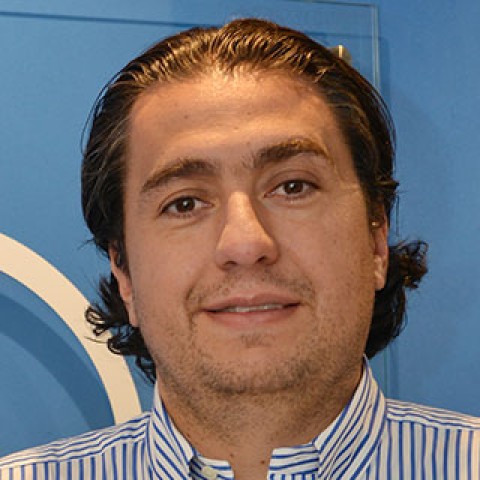
Nelson Maldonado
Organizador y Chair anual del Simposio de Cuidados Neurocríticos e Investigación Clínica
Actualmente es profesor de Neurología, Neurocirugía y Cuidados Neurocríticos de la Universidad San Francisco de Quito, líder del servicio de Neurología del Hospital de Especialidades Eugenio Espejo en Quito, Ecuador. Cursó sus estudios de medicina en la Pontificia Universidad Católica del Ecuador, luego se especializó en Neurología en el Hospital Henry Ford en Detroit Michigan y culminó sus estudios con un fellowship en Cuidados Neurocríticos en Baylor College of Medicine en Houston, Texas. Sus áreas de interés clínico y de investigación incluyen neurología vascular, y patologías neurológicas vasculares en la población ecuatoriana. Ha sido co-investigador de importantes investigaciones clínicas sobre hemorragias intracerebrales, stroke isquémico, hemorragia subaracnoidea entre otras. Ha sido ad-hoc reviewer de journals como Neurocritical Care, Stroke, Neurology entre otros. Autor del manuscrito, Update in the management of acute ischemic stroke publicado en las Critical Care Clinics en 2014. Es el investigador principal localmente del proyecto HANAK (High Altitude Neurophysiology Assesment and Knowledge). Se encuentra trabajando en la creación del postgrado en Neurología Clínica con la USFQ. Es el organizador y chair anual del Simposio de Cuidados Neurocriticos e investigación Clínica desde su inicio.
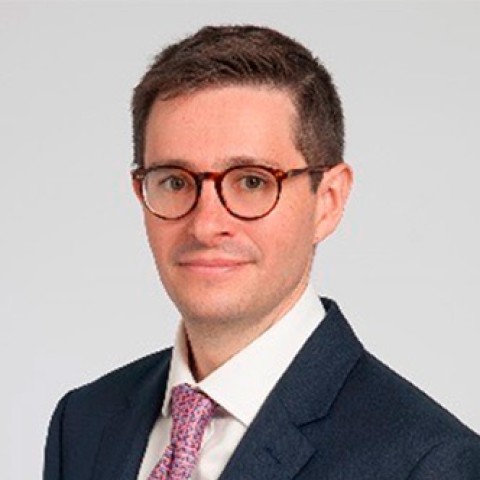
Daniel Ontaneda
Daniel Ontaneda, MD, MSc, is an assistant professor of Neurology/Medicine at the Cleveland Clinic Lerner College of Medicine of Case Western Reserve University and a staff member at the Cleveland Clinic Neurological Institute’s Mellen Center for Multiple Sclerosis.
Dr. Ontaneda is the lead principal investigator for a large international multicenter study examining early highly effective versus escalation approaches in multiple sclerosis (DELIVER-MS).He is also the Principal investigator for the Central vein Study in MS , a multi-center trial examining the role of central vein in the diagnosis of MS. He is also a member of the Executive Steering Committee for the North American Imaging in Multiple Sclerosis Cooperative. . Dr. Ontaneda is a member of the Multiple Sclerosis Functional Composite Task Force. Dr. Ontaneda’s research is funded by National Multiple Sclerosis Society, National Institutes of Health, Race to Erase Foundation, and Patient Centered Outcomes Research Institute. Dr. Ontaneda was the recipient of a Sylvia Lawry NMSS clinical Fellowship Award, NIH KL2 Cleveland CTSA career transition award. He was elected Teacher of the Year in the Neurology Department at Cleveland Clinic in 2017. Dr. Ontaneda is a reviewer for several medical journals, including Neurology, International Journal of Multiple Sclerosis Care, Lancet Neurology, Lancet, and Multiple Sclerosis Journal.
Dr. Ontaneda received his doctor of medicine from the Pontificia Universidad Católica del Ecuador and his master of science from Case Western Reserve University. He completed a postdoctoral research fellowship at Baylor College of Medicine, Houston, Texas. He then completed his neurology residency and a neuroimmunology fellowship at the Cleveland Clinic Foundation.
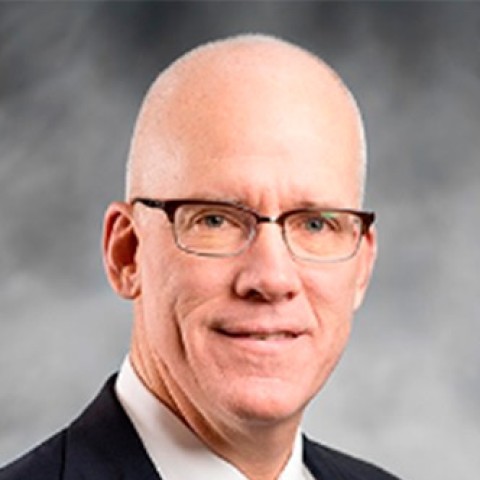
David Burdette
David Burdette, MD is board-certified in neurology, epilepsy, and clinical neurophysiology. Dr. Burdette serves as the section chief for epilepsy at Spectrum Health Medical Group. He earned his medical degree from Boston University School of Medicine and completed his neurology residency at Boston University Hospitals. Dr. Burdette completed clinical neurophysiology and epilepsy fellowships at Michigan Medical Center in Ann Arbor. Dr. Burdette’s clinical interests include neurotelemetry, treatment of refractory epilepsy, treatment of status epileptics, and electroencephalography (EEG). His research interests include investigational antiepileptic drugs and neuromodulation via neurostimulation in the treatment of epilepsy.
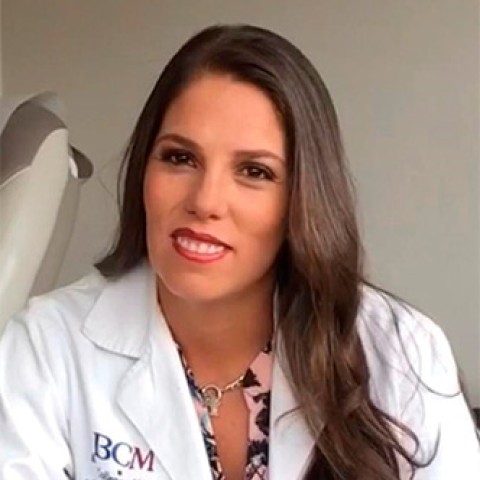
Caridad Dávalos
Graduada de Medicina y nutrición Humana en la USQF. Realizó su especialidad en pediatría general en el children’s Hospital of Michigan/ Wayne State Univeristy y sub especialidad en Terapia Intensiva Pediatrica en el Texas Children’s Hospital /Baylor College of Medicine.
Actualmente trabaja en Quito, fundadora de QuiDs Centro de Especialidades Pediatricas
Profesora USFQ.
Speakers
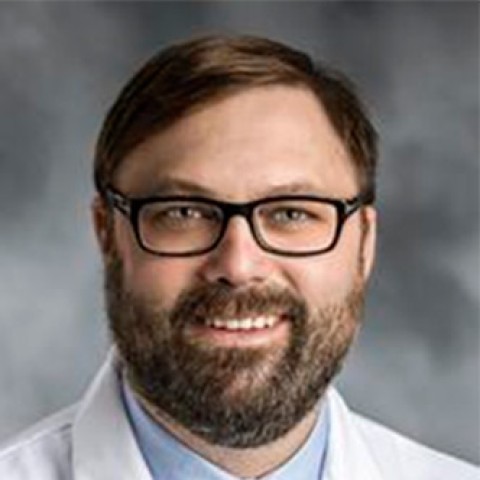
Andrew Zillgitt
Andrew Zillgitt is the section head of the Beaumont Health Adult Epilepsy Program. He obtained his medical degree from Michigan State University College of Osteopathic Medicine and completed a neurology residency at Garden City Hospital as part of MSU-COM Statewide Campus System. He then completed a clinical neurophysiology and epilepsy fellowship at Henry Ford Hospital. In addition, he has an added certification through the American Clinical Magnetoencephalography Society (ACMEGS) for clinical magnetoencephalography. He sits on the board of directors for ACMEGS and is also an associate professor at Oakland University William Beaumont School of Medicine. His clinical interests include providing comprehensive epilepsy care for people with epilepsy. His research interests include magnetoencephalography, neuroimaging, and epilepsy treatments (both medical and surgical).
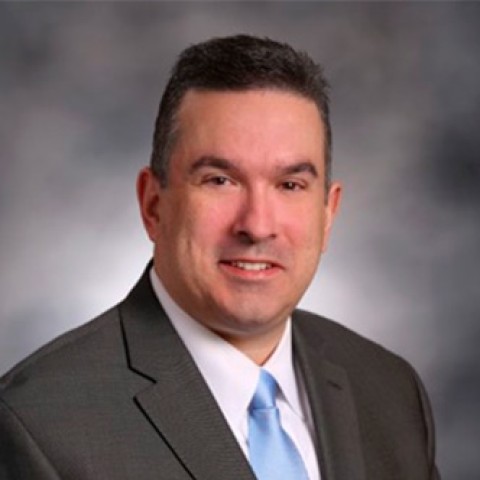
Ángel Hernández
Angel W. Hernandez, MD currently serves as the Chief of the Division of Neurosciences at Helen DeVos Children’s Hospital in Grand Rapids Michigan, he’s also Professor of Pediatrics and Human Development College of Human Medicine at Michigan State University.
Before joining Helen DeVos Children’s Hospital, Dr. Hernandez previously led the Division of Neurology, he was Medical Director of the Magnetoencephalography Center and Director of The Jane and John Justin Neurosciences Center Cook Children’s Health Care System Fort Worth, Texas.
He received his medical degree from the Ponce School of Medicine in Ponce, Puerto Rico. Dr. Hernandez completed his pediatric residency from Michigan State University. He continued on for his fellowships in Child Neurology, and then fellowship in Pediatric Epilepsy and Clinical Neurophysiology from the University of Pittsburgh Medical Center and the Children’s Hospital of Pittsburgh. Dr. Hernandez is board certified by the American Board of Neurology and Psychiatry (ABPN) with special qualifications in child neurology, ABPN with special qualifications in clinical neurophysiology and ABPN with special qualifications in epilepsy.
Dr. Hernandez is a member of numerous committees and professional societies, including member of the National Epilepsy Foundation Professional Advisory Board where he is now chair, and chair of the nominating committee. He also serves in the executive, and advocacy committees. He is also former Board Member of the National Epilepsy Foundation Board of Directors, and member and former Chair of the Epilepsy Foundation of Texas Dallas/Fort Worth Professional Advisory Board. He is the current Chair of the Digital Advisory Committee and former Chair of Resource and Information Committee of the American Epilepsy Society. He is a former member of the Finance Committee of the Child Neurology Society. Dr. Hernandez currently serves as reviewer for the journal Epilepsia, the journal of Pediatric Neurology and reviewer of the journal American Family Physician.
Dr. Hernandez was elected by the International League Against Epilepsy as visiting professor of epileptology to Central and South America and has been able to do work to educate neurologists, neurosurgeons and child neurologists in the diagnosis and management of epilepsy, and improve the quality of life of children and adults suffering from epilepsy in many Latin American countries. Dr. Hernandez clinical and research interests are in the diagnosis and treatment of patients with medically intractable epilepsy and magnetoencephalography. His research and publications have focused on improving the diagnosis and management of children with intractable epilepsy. He has been honored as one of the Top Doctors in the US.

Daniela Di Capua
- Médico Neurólogo del Hospital de Especialidades Eugenio Espejo y Hospital de los Valles
- Profesora asociada de Neurología Universidad San Francisco de Quito
- 5 años de experiencia en la unidad de epilepsia y video monitorización del Hospital Universitarios Clínico San Carlos de Madrid.
- Doctorado en Neurociencias (PhD) por la Universidad Complutense de Madrid. Cum Lauden
- 2 años de Experiencia como Neurólogo en la unidad de daño cerebral del Hospital Beata Mariana de Madrid.
- Especialista en Neurología por el Hospital Universitario Clínico San Carlos de Madrid.
- Doctor en Cirugía y Medicina General por la PUCE.
- Experiencia en investigación clínica.

Guilca Contreras
Médico cirujano de la universidad central de Venezuela.
Especialidad en pediatría y puericultura, hospital miguel Pérez Carreño, universidad central de Venezuela.
Especialidad en neurología infantil. Hospital de niños j.jm de los ríos, caracas - Venezuela.
Especialidad en electroencefalografía y epilepsia, hospital universitario de caracas, universidad central de Venezuela.
Experiencia en el manejo integral de los pacientes con epilepsia, niños y adolescentes, desde el año 2002. Evaluación del paciente con epilepsia farmacorresistente para cirugía de epilepsia y otros tratamientos.

Jeffrey Cohen
Dr. Cohen is Professor of Medicine (Neurology) in the Cleveland Clinic Lerner College of Medicine. He received a BA from Connecticut College in 1976 and MD from the University of Chicago School of Medicine in 1980. He completed a Neurology Residency in 1984 then a Post-doctoral Research Fellowship in Neuroimmunology in 1987, both at the University of Pennsylvania. Dr. Cohen has worked at the Mellen MS Center at the Cleveland Clinic since 1994 and was Director 2014-2017. He currently is Director of the Experimental Therapeutics Program, the Clinical Neuroimmunology Fellowship, and the MS Academic Coordinating Center. Dr. Cohen has published extensively on clinical, immunologic, and imaging aspects of MS. He has had a leadership role in a large number of clinical trials of potential therapies for MS, translational studies, studies to validate outcome measures, and observational studies.

Jonathan Burdette
Jonathan Burdette is a Professor of Neuroradiology at Wake Forest School of Medicine in Winston-Salem, NC, where he is the Vice Chair of Research for the Department of Radiology. Following graduation with a degree in Biomedical Engineering from Duke University, he received his MD degree from The University of Tennessee College of Medicine in Memphis and did his radiology residency at The University of Michigan in Ann Arbor. His neuroradiology fellowship was at Wake Forest University where he has been ever since. He has published 94 peer-reviewed manuscripts. His current research focuses on using advanced MR imaging techniques to study the brain as a complex network. He is a founding member of the Laboratory for Complex Brain Networks (LCBN), an interdisciplinary group of scientists dedicated to using functional MRI (fMRI) to study the brain using network theory approaches. The LCBN studies how exercise, nutritional habits, beet root juice, and meditation affect the functioning brain in the elderly. Additional research interests include the effects of music on the brain, the effects of pesticide exposure on brain development in children of Latino farmworkers, and identifying a brain network phenotype that is characteristic of vulnerability to alcohol use disorder. When he is not working, Dr. Burdette enjoys performing with the local opera company and watching his three daughters perform as the bluegrass/Celtic band The Dan River Girls.

Luis Carlos Mayor
Luis Carlos Mayor R is board certified in neurophysiology with added competence in epilepsy monitoring. Dr. Mayor earned his medical degree from the Universidad del Rosario School of Medicine in Bogota, Colombia. Dr. Mayor completed clinical neurophysiology fellowships at Case Western Reserve University Hospital in Cleveland Ohio, and Henry Ford Hospital in Detroit Michigan. He currently serves as the head of the Neurology Department and Director of the Epilepsy Clinic at the Hospital Universitario Fundacion Santa Fe de Bogota in Bogota, Colombia.

Marianna V. Spanaki
Marianna V. Spanaki, M.D., Ph.D., M.B.A. was born in Crete, Greece. She completed her Neurology residency in Athens, Greece and a research Fellowship in Epilepsy at Yale University School of Medicine in New Haven, CT where she conducted her PH.D. research in collaboration with Athens University.. She completed an Epilepsy Fellowship at the NINDS, at the National Institutes of Health Bethesda, MD.
After her fellowship, she joined the Epilepsy Program at the Medical College of Wisconsin for 5 years, before joining Henry Ford Medical Group in 2005.
In 2008 she received her executive M.B.A from University of Tennessee, Knoxville TN
Dr. Spanaki is currently the Division Head of the Henry Ford Comprehensive Epilepsy Program, Detroit MI and Associate Professor of Neurology at Wayne State University in Detroit, MI.
Dr. Spanaki has published more than 40 peer reviewed journal articles, 8 book chapters, and more than 40 abstracts in scientific meetings.
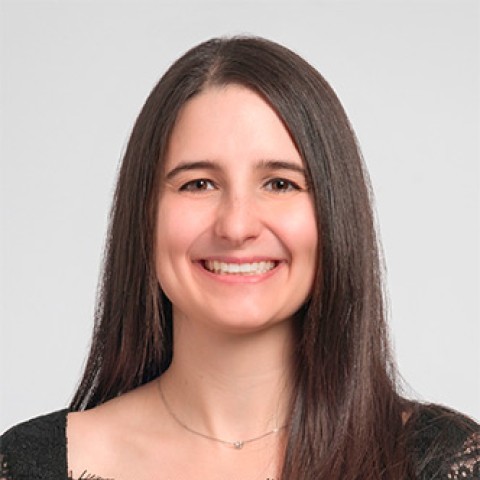
Marisa McGinley
Marisa McGinley is an Assistant Professor of Medicine (Neurology) in the Cleveland Clinic Lerner College of Medicine and a staff member at the Cleveland Clinic Neurological Institute’s Mellen Center for Multiple Sclerosis. She received her BA from The College of Wooster in 2008 and DO from the Ohio University Heritage College of Osteopathic Medicine in 2012. She completed a neurology residency at Loyola Medical Center in Chicago in 2016. She then completed a Neuroimmunology fellowship at the Cleveland Clinic in 2017 and Masters in Clinical Research at Case Western Reserve University in 2018. She was the recipient of a Sylvia Lawry NMSS fellowship award and an NIH KL2 Cleveland CTSA career transition award. Her current research focuses on incorporation of technology to facilitate distance health and the utilization of real-time data streams to better inform clinical trials and routine clinical care.
Programa de la Conferencia
| 4 DE JUNIO: NEUROPEDIATRÍA | |
|---|---|
| 15:00 - 15:30 | Síndromes epilépticos - Dr. Hernández |
| 15:30 - 16:00 | Selección del fármaco antiepiléptico - Dra. Contreras |
| 16:00 - 16:30 | Gestión de la primera crisis - Dr. Hernández |
| 16:30 - 17:00 | Gestión actualizada del estado epiléptico - Dra. Davalos |
| 17:00 - 17:15 | Receso |
| 17:15 - 17:45 | Diagnóstico y manejo de las convulsiones febriles - Dr. Hernández |
| 17:45 - 18:15 | Déficit de atención en el paciente con epilepsia - Dra. Contreras |
| 18:15 - 18:45 | Manejo de urgencias del traumatismo craneoencefálico - Dra. Davalos |
| 18:45 - 19:15 | Marihuana / CBD en el manejo de las epilepsias - Dr. Hernández |
| 5 DE JUNIO: EPILEPSIA | |
|---|---|
| 08:00 - 08:30 | Introducción (crisis versus epilepsia) - David Burdette, MD |
| 08:30 - 09:00 | Identificación, clasificación y tratamiento de las convulsiones - Andrew Zillgitt, DO |
| 09:00 - 09:30 | La neurorradiología de la epilepsia - Jonathan Burdette, MD |
| 09:30 - 09:45 | Receso |
| 09:45 - 10:15 | Cuestiones de la mujer en la epilepsia - Marianna Spanaki, MD |
| 10:15 - 10:45 | Epilepsia pediátrica: identificación y tratamiento de las crisis - Dr. Ángel Hernández |
| 10:45 - 11:15 | La epilepsia en América del Sur, estado actual y direcciones futuras - Carlos Mayor, MD |
| 11:15 - 11:30 | Receso |
| 11:30 - 12:00 | Unidad de monitoreo de la epilepsia - Andrew Zillgitt, DO |
| 12:00 - 12:30 | Dispositivos implantables (VNS, DBS, RNS), el futuro del tratamiento de la epilepsia - David Burdette, MD |
| 12:30 - 14:30 | Almuerzo |
| 14:30 - 15:35 | Cirugía de la epilepsia (2 casos [30 minutos cada uno] que representan la resección del lóbulo temporal y la ablación con láser de un foco profundo con Mayor presentando el caso [~5 minutos cada uno], J Burdette revisando la neuroimagen [~5 minutos cada uno], y Mayor/Zillgitt presentando el resultado [~5 minutos cada uno]) - Carlos Mayor, MD, Jonathan Burdette, MD, y Andrew Zillgitt, DO |
| 15:35 - 16:00 | Debate y preguntas (Alcalde [mod], Zillgitt y J Burdette) |
| 16:00 - 17:00 | Cirugía de la epilepsia (2 casos [30 minutos cada uno] que representan resección o ablación y RNS pediátrica después de sEEG con Hernández presentando el caso [~5 minutos cada uno], J Burdette revisando la neuroimagen [~5 minutos cada uno], y Hernández presentando el resultado [~5 minutos cada uno]) - Ángel Hernández, MD y Jonathan Burdette, MD |
| 17:00 - 17:30 | Mesa redonda y preguntas (Hernández [mod], Zillgitt, J Burdette, Mayor, Di Capua) ESCLEROSIS MÚLTIPLE 6 DE JUNIO |
| 6 DE JUNIO: ESCLEROSIS MÚLTIPLE | |
|---|---|
| 09:00 - 09:45 | Introducción y MS 101 Daniel Ontaneda MD MSc, |
| 09:45 - 10:30 | Criterios de diagnóstico revisados acerca de la esclerosis múltiple 2017/2018 - Jeffrey Cohen MD |
| 10:30 – 11:15 | Epidemiología de la esclerosis múltiple en LATAM Presentador local - Dr. Patricio Abad |
| 11:15 – 11:30 | Debate/Preguntas |
| 11:30 – 11:45 | Receso |
| Sección II Biomarcadores y factores de riesgo | |
| 11:45 – 12:15 | Medición asistida por tecnología en la clínica de la EM - Marisa McGinley DO MSc |
| 12:15 - 12:45 | Enfoques de tratamiento de la EMRR a la EMPP - Daniel Ontaneda MD MSc, |
| 12:45 - 14:30 | Almuerzo |
| 14:30 - 15:15 | Terapias con células B en la esclerosis múltiple - Marisa McGinley DO MSc |
| 15:15 – 16:00 | Terapias celulares para la esclerosis múltiple - Jeffrey Cohen MD |
Organizadores
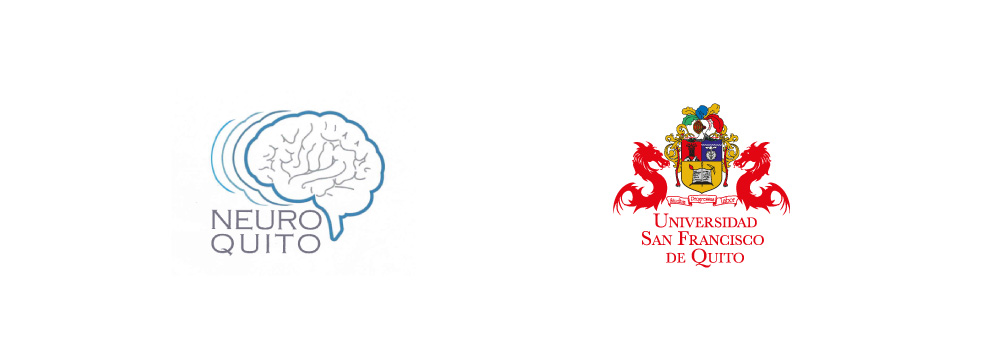
Auspiciantes


